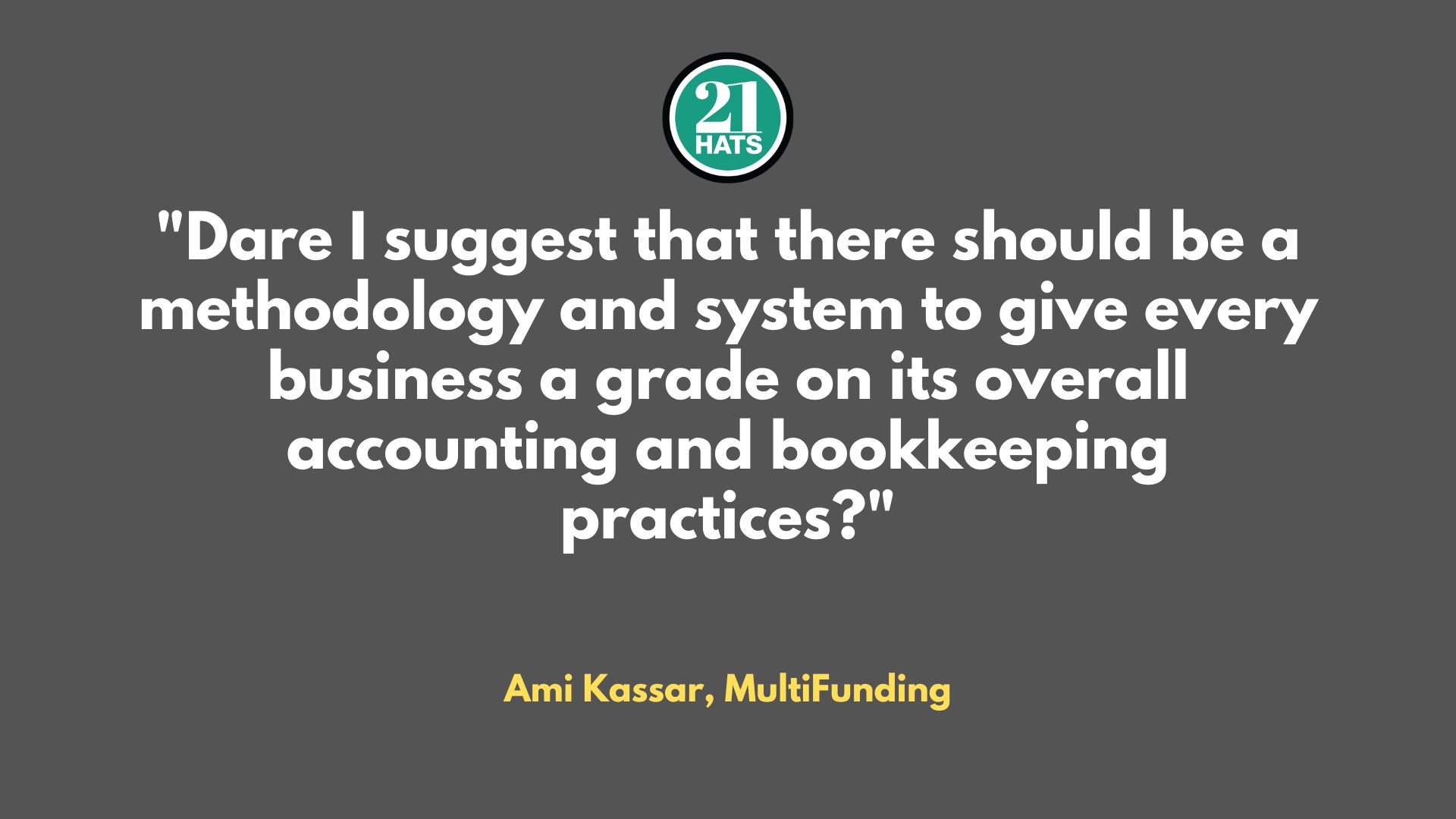The Right Time to Clean Up Your Books Is Now

For many entrepreneurs, accounting is the last thing they think about when they start a business.
By Ami Kassar
I started a debate on Facebook last week when I said, “Implementing EOS or Scaling Up before you have your accounting and bookkeeping working properly is like trying to build a house without a foundation!”
Entrepreneurial Operating System and Scaling Up are two methodologies to help entrepreneurs set priorities, improve internal communications, and get organized to grow and scale. While some companies choose to self-implement these systems, many use a professional implementer or coach to help them.
My comment on Facebook spurred a debate. Many did not agree with a statement that seemed like common sense to me. One Scaling Up coach commented, “We frequently work on them together. Practices and processes like accounting and bookkeeping always need improvement.” Another entrepreneur stated, “Implementing EOS can free one from drowning in the day-to-day, which affects our ability to get the accounting right.” An EOS implementer wrote, “An issue of improper bookkeeping and accounting comes up pretty early in an EOS implementation process.”
I have a bold suggestion. Dare I suggest that there should be a methodology and system to give every business a grade on its overall accounting and bookkeeping practices? If the company receives a B or above, I am all in favor of it working on continuous improvements as part of an EOS or Scaling Up process. But if you have a C or below, there should be an immediate focus on fixing your accounting before using resources on anything else.
There are various degrees of functioning accounting and bookkeeping systems. Sadly, many in our community are in lousy shape and running in the dark. And should a crisis hit and they need funding, their only choice will be to deal with predatory lenders.
For many entrepreneurs, accounting is the last thing they think about when they start a business. They have an idea they want to bring to life that they are passionate about, and accounting and bookkeeping are annoying details that sometimes feel like they get in the way of the million other things they need to do.
But if the bookkeeping systems aren’t working correctly, problems can have a domino effect. And the longer you wait, the more challenging they are to clean up. Checking in with your accountant yearly at tax time is not enough. Often, as a business grows, the accounting and bookkeeping demands increase, as well as the skills required to execute them; if you don’t have the right team in place, other issues will escalate.
In our work at MultiFunding, we often get calls from businesses with a current or looming cash flow crisis. We need to see clean financial statements before arranging a fair and reasonable financing package. When the financials are a mess, the options are far more limited and far more expensive. On those occasions when the crisis is too great, and there is no time to clean up the books, the conversations can be extremely painful.
I have seen companies spending a fortune on EOS implementation, working on all kinds of priorities, and running 100 miles a minute. And yet, at the same time, their billing is running four months late, their financial statements need to be fixed, and their lack of cash flow is choking them. Experiences like this make me wonder why this isn’t more obvious to owners. No one would try to play basketball with their shoelaces untied, would they? If you don’t have good data and don’t understand your financials and profitability, how can you set your priorities and make strategic decisions?
This column does not intend to suggest that systems like EOS or Scaling Up are useless. I have seen both make huge impacts on companies. But they should not replace fundamentals. Your house will never be stable if you don’t lay a good foundation.
Ami Kassar is CEO of MultiFunding.